military
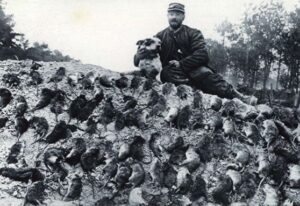
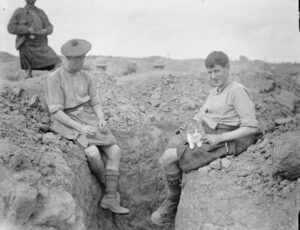 Trench warfare is a type of land warfare using occupied lines largely comprising military trenches, in which troops are well-protected from the enemy’s small arms fire and are substantially sheltered from artillery. That doesn’t protect them from many other weapons, like tanks, bomber planes, and some things that seem far more benign…rats and disease, not that these things aren’t dangerous. In fact, during World War I, these seemingly benign pests were becoming a deadly problem. Trench foot was one of the biggest disease problems, due to the wet and dirty conditions the men basically lived in.
Trench warfare is a type of land warfare using occupied lines largely comprising military trenches, in which troops are well-protected from the enemy’s small arms fire and are substantially sheltered from artillery. That doesn’t protect them from many other weapons, like tanks, bomber planes, and some things that seem far more benign…rats and disease, not that these things aren’t dangerous. In fact, during World War I, these seemingly benign pests were becoming a deadly problem. Trench foot was one of the biggest disease problems, due to the wet and dirty conditions the men basically lived in.
The rats…well, they were a bigger problem. The fact that the men “lived” in the trenches meant things like human waste, food scraps, and dead bodies drew the rats, and rats spread disease like typhus and the plague, 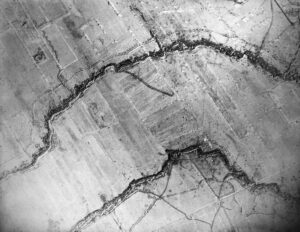 which made the problem of disease more deadly. Since trash disposal wasn’t easy in the trenches, the men often threw empty food tins out of the trenches at night. Then, the rats could be heard turning the tins over and licking the last tidbits out of them. For me the whole scene would be enough to make me want to run screaming from the scene, but that could get a soldier killed. Something had to be done…and done quickly. Due to the plentiful amount of food, some of these rats grew quite large in size. One story tells of a soldier who spotted one the size of a cat.
which made the problem of disease more deadly. Since trash disposal wasn’t easy in the trenches, the men often threw empty food tins out of the trenches at night. Then, the rats could be heard turning the tins over and licking the last tidbits out of them. For me the whole scene would be enough to make me want to run screaming from the scene, but that could get a soldier killed. Something had to be done…and done quickly. Due to the plentiful amount of food, some of these rats grew quite large in size. One story tells of a soldier who spotted one the size of a cat.
Something had to be done, so French troops tried to control the rat problem by bringing terrier dogs into the trenches with them. The plan was to let the dogs catch and kill rats, and it quickly became an interesting way to pass the time during daylight hours. Because of the dangers presented by the rats, the military actually offered soldiers a reward for killing the rats as incentive to decrease their numbers. It was a great idea, but not really practical, because rats are notoriously great escape artists…at least from humans. Nevertheless, apparently the troops got so into the 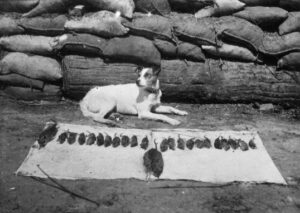
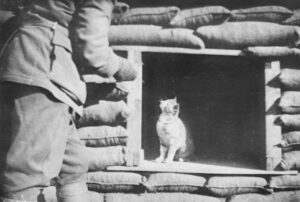 game, with one army corps managed to catch 8,000 in a single night. Other soldiers adopted cats instead of dogs, and it’s believed around 500,000 cats helped out in the trenches over the course of World War I. Many of the cats, and some of the dogs, ended up serving as mascots for troops on the front lines as well as hunters. I guess the plan worked, but maybe the animals should have been given a medal too.
game, with one army corps managed to catch 8,000 in a single night. Other soldiers adopted cats instead of dogs, and it’s believed around 500,000 cats helped out in the trenches over the course of World War I. Many of the cats, and some of the dogs, ended up serving as mascots for troops on the front lines as well as hunters. I guess the plan worked, but maybe the animals should have been given a medal too.
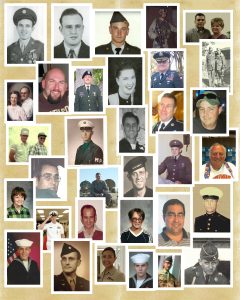 The United States is a great nation, but it would be very hard for a nation to remain great, if that nation did not have a strong military. These days, national security is not guaranteed. That makes our military men and women absolutely essential. All too often, I don’t think we give our veterans the respect and recognition they deserve.
The United States is a great nation, but it would be very hard for a nation to remain great, if that nation did not have a strong military. These days, national security is not guaranteed. That makes our military men and women absolutely essential. All too often, I don’t think we give our veterans the respect and recognition they deserve.
Veterans and soldiers are unique characters. Most of us are not interested in running off to some other country at the drop of a hat to defend people we don’t even know. Nevertheless, when a people are being oppressed, it is a soldier who is called to defend them. These soldiers leave their homes and families, often for months at a time, and go off to another country to defend strangers. They miss births, first steps, school plays, graduations, and so much more. They miss tucking their children in at night, 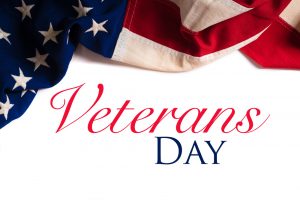 dropping them off at school in the morning, watching their sporting events, and having weekend barbecues, just to name a few. By the time they have left the military, their children are often mostly grown up. It is time they can never get back, and yet they consider it time well spent, because they did their duty and they saved lives. What more could we ask of them?
dropping them off at school in the morning, watching their sporting events, and having weekend barbecues, just to name a few. By the time they have left the military, their children are often mostly grown up. It is time they can never get back, and yet they consider it time well spent, because they did their duty and they saved lives. What more could we ask of them?
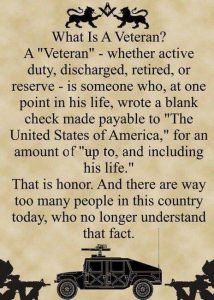 Veterans Day is a day when we honor those who served and upon their discharge, came back home. In this case, while it does honor veterans who have gone to their Heavenly home, it is not about those killed in action. Theirs is a different day…Memorial Day, the day we remember those lost in battle. All of these men and women served their country and the world, but a veteran came home and lived out their life…hopefully with all their limbs attached, but many times that was not to be either. Those veterans, and those with PTSD need our help badly, but all veterans, no matter what the outcome of their service was, deserve our complete and total respect. Veterans Day began on November 11, 1919, making this year the 101st anniversary of that date. To all those among us who served, thank you for your service, and to those veterans who have gone home, including my dad, Allen Spencer and many family members, I thank you!! Happy Veterans Day.
Veterans Day is a day when we honor those who served and upon their discharge, came back home. In this case, while it does honor veterans who have gone to their Heavenly home, it is not about those killed in action. Theirs is a different day…Memorial Day, the day we remember those lost in battle. All of these men and women served their country and the world, but a veteran came home and lived out their life…hopefully with all their limbs attached, but many times that was not to be either. Those veterans, and those with PTSD need our help badly, but all veterans, no matter what the outcome of their service was, deserve our complete and total respect. Veterans Day began on November 11, 1919, making this year the 101st anniversary of that date. To all those among us who served, thank you for your service, and to those veterans who have gone home, including my dad, Allen Spencer and many family members, I thank you!! Happy Veterans Day.
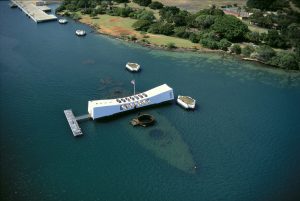 Probably the most notable memorials of the December 7, 1941 attack on Pearl Harbor, is the Arizona Memorial, which floats atop the sunken ship USS Arizona, which sank during that attack, taking with it 1,177 men. In all, the Japanese attack on Pearl Harbor, took the lives of 1998 navy personnel, 109 Marines, 233 army personnel and 48 civilians that were killed in that bombing which resulted in 2,402 soldiers killed and 1,282 military personnel and civilians wounded. Over half of the fatalities of that dreadful day occurred on the USS Arizona.
Probably the most notable memorials of the December 7, 1941 attack on Pearl Harbor, is the Arizona Memorial, which floats atop the sunken ship USS Arizona, which sank during that attack, taking with it 1,177 men. In all, the Japanese attack on Pearl Harbor, took the lives of 1998 navy personnel, 109 Marines, 233 army personnel and 48 civilians that were killed in that bombing which resulted in 2,402 soldiers killed and 1,282 military personnel and civilians wounded. Over half of the fatalities of that dreadful day occurred on the USS Arizona.
The USS Arizona had one more situation that would make it unique…in a tragic way. There were 38 sets of brother stationed on the USS Arizona. The brothers totaled 79 men. Of these 79 brothers, 63 lost their lives that day. There were three sets of three brothers: the Beckers, the Dohertys, and the Murdocks. Only one of each of the sets of three survived. Of the 38 sets of brothers on the USS Arizona, 23 complete sets were lost. There was also a father/son set on the USS Arizona…both of whom were killed in the attack. This is in no way to say that any of the other people killed in the Pearl Harbor attack of December 7, 1941 were less important that these brothers or the father and son set, because they weren’t. Every person that served when out nation was brutally attacked that day, gave their lives for their country. The brothers serving was unusual, in that the military tries not to place siblings together, 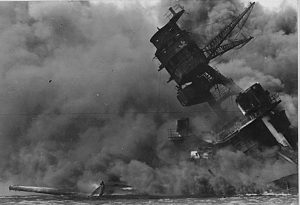 lest they both be killed, but these men requested this. They liked having their brother there with them. I can understand that. Long months away from family can be very lonely.
lest they both be killed, but these men requested this. They liked having their brother there with them. I can understand that. Long months away from family can be very lonely.
The explosion and subsequent fires on the USS Arizona killed 1,177 sailors and marines instantly. The entire front portion of the ship was destroyed, because the fire burned everything in its path. To make matters worse, the fires continued for 2½ days, causing the bodies that were there to be cremated before anyone could located and removed. Out of a crew of 1,511 men on the USS Arizona, only 334 survived. Of the dead, only 107 were positively identified, due to the immense fire. The remaining 1,070 casualties fell into three categories: (1) Bodies that were never found; (2) Bodies that were removed from the ship during salvage operations and were severely dismembered or partially cremated that identification was impossible. DNA testing was unheard of in 1941. These bodies were placed in temporary mass graves, and later moved and reburied and marked as unknowns, at the National Memorial Cemetery of the Pacific (Punchbowl) in 1949; and (3) Bodies located in the aft (rear) portion of the ship. These remains could have been recovered, but were left in the ship due to their unidentifiable condition. The injuries to these bodies indicated that most of these crew members died from the concussion from the massive explosion.
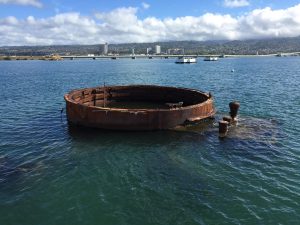 Everyone of the people who lost their lives on December 7, 1941, at Pearl Harbor, were heroes. Their families were left to mourn their loss, mostly without the closure that can be found when there is a body to bury. The horrific attack marked the inevitable entrance of the United States into World War II, and if the Japanese thought they could beat the United States with this sneak attack, they soon found out just how wrong they were. They had awakened the “sleeping giant” and they would be sorry they did. Today we honor all those who dies at Pearl Harbor, but also, all who survived and went forward to avenge their fallen comrades. We will never forget their sacrifice. We are forever grateful.
Everyone of the people who lost their lives on December 7, 1941, at Pearl Harbor, were heroes. Their families were left to mourn their loss, mostly without the closure that can be found when there is a body to bury. The horrific attack marked the inevitable entrance of the United States into World War II, and if the Japanese thought they could beat the United States with this sneak attack, they soon found out just how wrong they were. They had awakened the “sleeping giant” and they would be sorry they did. Today we honor all those who dies at Pearl Harbor, but also, all who survived and went forward to avenge their fallen comrades. We will never forget their sacrifice. We are forever grateful.
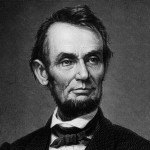
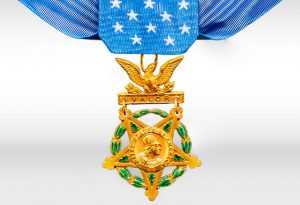 In a war, there are many heroes…some whose acts of courage and selflessness were so amazing that many felt they needed to receive a different medal…one that paid homage to the incredible things they did. Often these medals were even given posthumously because the brave act of the hero, cost the recipients their lives. Before 1861, no such medal existed. President Abraham Lincoln didn’t think that was right. There were many brave soldiers, and while not all brave acts would qualify for the medal of honor, the most self sacrificing of them would…the ones who set aside their own safety to protect the lives of others.
In a war, there are many heroes…some whose acts of courage and selflessness were so amazing that many felt they needed to receive a different medal…one that paid homage to the incredible things they did. Often these medals were even given posthumously because the brave act of the hero, cost the recipients their lives. Before 1861, no such medal existed. President Abraham Lincoln didn’t think that was right. There were many brave soldiers, and while not all brave acts would qualify for the medal of honor, the most self sacrificing of them would…the ones who set aside their own safety to protect the lives of others.
For that reason, President Abraham Lincoln signed into law a measure calling for the awarding of a US Army Medal of Honor, in the name of Congress, “to such noncommissioned officers and privates as shall most distinguish themselves by their gallantry in action, and other soldier-like qualities during the present insurrection.” The previous December, Lincoln had approved a provision creating a US Navy Medal of Valor, which was the basis of the Army Medal of Honor created by Congress on July 12, 1862. War puts men and women into situations whereby the only choices are kill or be killed. That can be a scary proposition. These soldiers do not do what they do in order to receive a medal. In fact, a medal rarely crosses their minds at all. The first US Army soldiers to receive what would become the nation’s highest military honor were six members of a Union raiding party who in 1862 penetrated deep into Confederate territory to destroy bridges and railroad tracks between Chattanooga, Tennessee, and Atlanta, Georgia.
In 1863, the Medal of Honor was made a permanent military decoration available to all members, including commissioned officers, of the US military. It is conferred upon those who have distinguished themselves in actual combat at risk of life beyond the call of duty. Since its creation, during the Civil War, more than 3,400 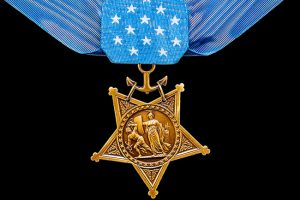
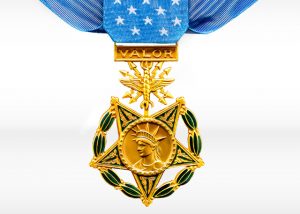 men and one woman, Dr Mary Walker, have received the Medal of Honor for heroic actions in US military conflict. These people gave whatever it took to perform their duties. They were the best of the best, and the medal of honor was the best honor we could bestow on them. Of course, in Lincoln’s time, there was no air force, so that medal came later, as did the medals from the other branches of service, including the Coast Guard.
men and one woman, Dr Mary Walker, have received the Medal of Honor for heroic actions in US military conflict. These people gave whatever it took to perform their duties. They were the best of the best, and the medal of honor was the best honor we could bestow on them. Of course, in Lincoln’s time, there was no air force, so that medal came later, as did the medals from the other branches of service, including the Coast Guard.
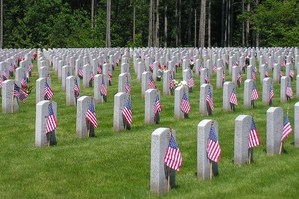
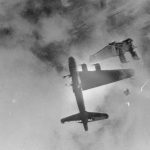 Many people think of Memorial Day as the unofficial start of summer. They plan barbecues and trips with family because they have a three day weekend. Memorial Day, however, is really a day to remember the soldiers who gave their lives fighting for our freedoms in battle. While the work of every service member, whether in battle or in peacetime, is vital, and deserves recognition, Memorial Day is not the proper day to honor every veteran…Veterans Day is the day to honor veterans who came home from war, or who served in peacetime. Many people may consider that a technicality, but when you remember that the military is an institution of protocol and discipline. Things are always done in the proper order and for the proper reasons. That is what makes the military the disciplined, capable, and highly skilled organization that it is. Of course, to those of us who have never served, there is a feeling of wanting to honor all of our service members, and we don’t see the harm in adding those who weren’t killed in action, to the same memorial as those who didn’t make it home, but we would be wrong.
Many people think of Memorial Day as the unofficial start of summer. They plan barbecues and trips with family because they have a three day weekend. Memorial Day, however, is really a day to remember the soldiers who gave their lives fighting for our freedoms in battle. While the work of every service member, whether in battle or in peacetime, is vital, and deserves recognition, Memorial Day is not the proper day to honor every veteran…Veterans Day is the day to honor veterans who came home from war, or who served in peacetime. Many people may consider that a technicality, but when you remember that the military is an institution of protocol and discipline. Things are always done in the proper order and for the proper reasons. That is what makes the military the disciplined, capable, and highly skilled organization that it is. Of course, to those of us who have never served, there is a feeling of wanting to honor all of our service members, and we don’t see the harm in adding those who weren’t killed in action, to the same memorial as those who didn’t make it home, but we would be wrong.
I have been listening to a book about the 8th Air Force in World War II. As the narrator tells the story of a bomber or fighter plane that will not be returning to base, and a crew who had a one way ticket to the war, I find myself thinking about how my dad, Allen Spencer must have felt each time the B-17 bomber, on which he was a top turret gunner, took off on another bomb run. The feeling in his gut as the plane took off, the prayers he was praying for himself and every other crew member on his and every other plane, the sickening feeling as the planes went down or exploded, and the long moments waiting and watching to see how many parachutes emerged from the stricken planes. I know that my dad and every other soldier who returned from the war, lost buddies over there. I don’t think you could ever forget those lost ones, and I don’t think you could see your way clear to honoring the living with the lost.
I know a number of soldiers, both retired and discharged, as well as some who are currently serving in the armed forces. These people know the meaning of each of the military holidays, and in fact, it was one of them 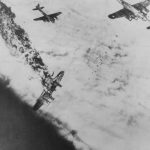
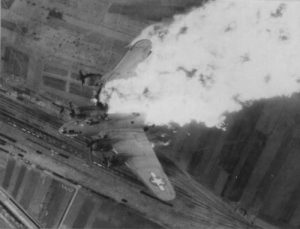 who first told me the difference between the military holidays. Once you know the difference, you really don’t feel right about celebrating the wrong way, because each holiday has its proper purpose. This memorial Day, I honor all of our fallen soldiers of any war, and I pray for the loved ones they left behind when it was known that they got just a one way ticket to war. Your loved one was a great warrior, and you have every reason to be very proud. Honoring our fallen soldiers on this Memorial Day. Rest In Peace.
who first told me the difference between the military holidays. Once you know the difference, you really don’t feel right about celebrating the wrong way, because each holiday has its proper purpose. This memorial Day, I honor all of our fallen soldiers of any war, and I pray for the loved ones they left behind when it was known that they got just a one way ticket to war. Your loved one was a great warrior, and you have every reason to be very proud. Honoring our fallen soldiers on this Memorial Day. Rest In Peace.
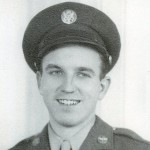
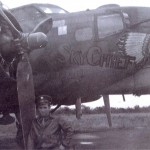 A number of years ago, I requested my dad, Staff Sergeant Allen Lewis Spencer’s military records from the National Personnel Records Center (NPRC) in Saint Louis, Missouri, only to be told that the records had been destroyed by a fire in 1973. I hadn’t heard about this before, and so really knew nothing about the details, except that I would never be able to find any more records of my dad’s military service during World War II, other than the ones we had, which was comparatively little. I wondered how it could be that the only military records for all those men were stored in one building, with no back up records. I know computers were not used as often, but there were things like microfiche back then. Nevertheless, the records were lost…and the loss felt devastating to me.
A number of years ago, I requested my dad, Staff Sergeant Allen Lewis Spencer’s military records from the National Personnel Records Center (NPRC) in Saint Louis, Missouri, only to be told that the records had been destroyed by a fire in 1973. I hadn’t heard about this before, and so really knew nothing about the details, except that I would never be able to find any more records of my dad’s military service during World War II, other than the ones we had, which was comparatively little. I wondered how it could be that the only military records for all those men were stored in one building, with no back up records. I know computers were not used as often, but there were things like microfiche back then. Nevertheless, the records were lost…and the loss felt devastating to me.
When I heard about the fire that destroyed my dad’s records, it all seemed like the distant past, but in reality, it was during my high school years. Then, it just seemed like a bad dream…a nightmare really. I couldn’t believe that there was no way to get copies of those records. My dad’s pictures, one of which was signed by the pilot of Dad’s B-17, on which Dad was a top turret gunner. Those pictures and the few records are all we have of his war years, and to this day, that makes me sad.
The fire broke out on July 13, 1973 and quickly engulfed the top floor of the National Personnel Records Center (NPRC). In less 15 minutes from the time the fire was reported, the first firefighters arrived at the sixth floor of the building, only to be forced to retreat as their masks began to melt on their faces. The fire was that hot!! There was just no way to successfully save the documents that were stored there. The fire burned out of control for more than 22 hours…even with 42 fire districts attempting to extinguish the flames. It was not until five days later that it was finally completely out. Besides the burning of records, the tremendous heat of the fire warped shelves while water damage caused some surviving documents to carry mold.
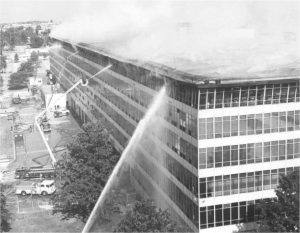
About 73% to 80% of the approximately 22 million individual Official Military Personnel Files stored in the building were destroyed. The records lost were those of former members of the U.S. Army, the Army Air Force, and the Air Force who served between 1912 and 1963. My dad joined the Army Air Force on March 19, 1943 and was discharged October 3, 1945. Many of the documents lost were from those years. They were gone, and there was no way to get them back. The National Personnel Records Center staff continues to work to preserve the damaged records that ere saved. There were about 6.5 million records recovered since the fire.
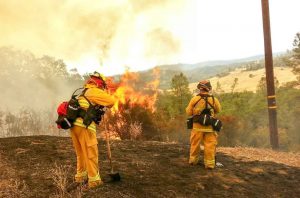 When we think of deployment, we think of the military and of war, but there are other ways to be deployed too, and some of them do not even include the military. Every year, thousands of firefighters are separated from their family members, some of them for months at a time. For the most part, these are wildland firefighters, but sometimes they even have to enlist the help of teams from cities around the country. Wildland fires are not bound by the schedules of humans. Once they get going, they take on a life of their own. Firefighters are in it for the long haul, and many wildland firefighters go from fire to fire, spending the entire fire season far away from their families.
When we think of deployment, we think of the military and of war, but there are other ways to be deployed too, and some of them do not even include the military. Every year, thousands of firefighters are separated from their family members, some of them for months at a time. For the most part, these are wildland firefighters, but sometimes they even have to enlist the help of teams from cities around the country. Wildland fires are not bound by the schedules of humans. Once they get going, they take on a life of their own. Firefighters are in it for the long haul, and many wildland firefighters go from fire to fire, spending the entire fire season far away from their families.
The other night my husband, Bob and I were watching a television program called FireStorm. The show focused on not just what happens during a wildfire, but also on the people who are affected by the fire, that most of us never think about…the firefighters. These are the people who leave their families at home and head out to fight a fire at a moments notice. Some of these people are gone for as much as nine months out of the year, going from fire to fire. These people include the smoke jumpers, the tanker 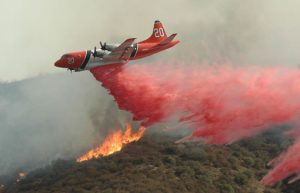 plane personnel, the hotshot units, and sometimes teams from cities in the area, as well as the Bureau of Land Management, and the Forest Service firefighting teams. These people talked about missing everything from school functions to weddings and childbirth. The fires wait for no man, and people depend on these men and women to drop everything and come quickly to try to save their homes.
plane personnel, the hotshot units, and sometimes teams from cities in the area, as well as the Bureau of Land Management, and the Forest Service firefighting teams. These people talked about missing everything from school functions to weddings and childbirth. The fires wait for no man, and people depend on these men and women to drop everything and come quickly to try to save their homes.
Smoke jumpers are especially isolated. They jump into a fire area and they are pretty much on their own for up to 3 weeks. The have to pack supplies, tents, and water with them. Part of it is dropped with the smoke jumpers and part of it with it’s own parachute. These firefighters are on their own now…in the middle of the monster. Obviously, they have ways out, but often it is by helicopter. They have to be alert at all times, and there is no time for fun and games. Smoke jumpers are essentially seal teams, when compared to the military. They go out on missions that no one else wants to attempt, and most often, they come back alive too. That is not always the case of course, because some of these teams have been overtaken and killed like the Prineville, 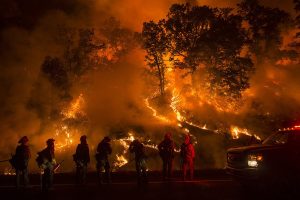 Oregon hotshot team killed on Storm King Mountain in Colorado, when the fire exploded and ran up the hill overtaking them. They paid the ultimate sacrifice for other people in an effort to save lives and homes.
Oregon hotshot team killed on Storm King Mountain in Colorado, when the fire exploded and ran up the hill overtaking them. They paid the ultimate sacrifice for other people in an effort to save lives and homes.
Firefighters who go out for months at a time fighting wildfires all over the country, are truly just as much deployed as their military counterparts, but we seldom think about the family side of their time fighting the fires. The spouses and children, and even parents and siblings, waiting and praying that their firefighter will make it home. It is a different kind of deployment, but it is a deployment nevertheless.
 In a time when our nation is in such turmoil, I find myself appreciating our veterans even more than I did before. As a proud daughter of a World War II veteran, I always had a feeling of awe when it came to the members of our military. I never thought of a soldier without associating it with a hero, because that is what they are…each and every one of them. It takes the heart of a hero to set aside their own life, time with family, and their safety to protect the rights and lives of others…people they don’t know…who aren’t in their own country.
In a time when our nation is in such turmoil, I find myself appreciating our veterans even more than I did before. As a proud daughter of a World War II veteran, I always had a feeling of awe when it came to the members of our military. I never thought of a soldier without associating it with a hero, because that is what they are…each and every one of them. It takes the heart of a hero to set aside their own life, time with family, and their safety to protect the rights and lives of others…people they don’t know…who aren’t in their own country.
Soldiers are a special kind of hero. Like our first responders, they run into danger while others are running away, but a soldier does that in countries that aren’t their own. They have no stake in that country, but they know that without their help, the people of that nation are going to continue to live oppressed. The soldier fights for those who cannot fight for themselves. Evil dictators cringe when the soldiers are sent in, because there is a good possibility that the dictator’s days are numbered. War is never an easy journey for the soldier, but he or she knows that they are needed. They know that for every enemy death…a life is saved, and while that may be putting things a little bit simplistically, in a very real sense, it is true. In a war, the enemy must be beaten, in order to win the war, and thereby save the innocent.
Going off to war changes a person, and so does training to go to war. The minute a soldier joins up, there is a possibility of going to war, and the soldier has to face that fact. That’s where the heart of the hero kicks in. Deep down inside, the soldier has knows that what they are doing is important…it matters. Theirs is often a thankless job, and is sometimes treated with great disrespect, but when they are needed, they answer the call, nevertheless. It is our soldiers and their strength, that usually keeps our homeland free from attack. It’s not that we have never had attacks on our soil, but a strong, at the ready military force, makes our enemies think twice about trying to attack us here…and for that, I thank our military men and women. Our nation is very blessed to have our soldiers. To our active duty soldiers and our veterans of all wars, Happy Veterans Day!!
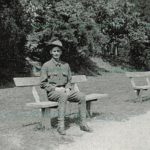
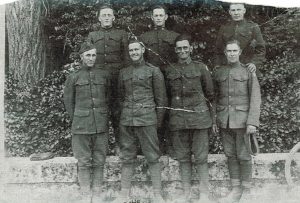 When the United States entered World War I, they sent men into France to join Allied forces there. Their arrival was a great relief to the exhausted Allied soldiers. Before long the American soldiers in France became known as Doughboys. This was not an unknown term, since it had been used For centuries to describe such soldiers as Horatio Nelson’s sailors and Wellington’s soldiers in Spain, for instance. Both of these groups were familiar with fried flour dumplings called doughboys, the predecessor of the modern doughnut that both we and the Doughboys of World War I came to love. The American Doughboys were the men America sent to France in the Great War, who beat Kaiser Bill and fought to make the world safe for Democracy.
When the United States entered World War I, they sent men into France to join Allied forces there. Their arrival was a great relief to the exhausted Allied soldiers. Before long the American soldiers in France became known as Doughboys. This was not an unknown term, since it had been used For centuries to describe such soldiers as Horatio Nelson’s sailors and Wellington’s soldiers in Spain, for instance. Both of these groups were familiar with fried flour dumplings called doughboys, the predecessor of the modern doughnut that both we and the Doughboys of World War I came to love. The American Doughboys were the men America sent to France in the Great War, who beat Kaiser Bill and fought to make the world safe for Democracy.
It is thought, however, that the Doughboys of World War I might have acquired the name in a slightly different way. In fact, there are a variety of theories about the origins of the nickname. One explanation is that the term dates back to the Mexican War of 1846 to 1848, when American infantrymen made long treks over dusty terrain, giving them the appearance of being covered in flour, or dough. As a variation of this account goes, the men were coated in the dust of adobe soil and as a result were called “adobes,” which morphed into “dobies” and, eventually into “doughboys.” Among other theories, according to “War Slang” by Paul Dickson, American journalist and lexicographer H.L. Mencken claimed the nickname could be traced to Continental Army soldiers who kept the piping on their uniforms white through the application of clay. When the troops got rained on the clay on their uniforms turned into “doughy blobs,” supposedly leading to the doughboy moniker.
Whatever the case may be, doughboy was just one of the nicknames given to those who fought in the Great War. For example, “poilu” meaning “hairy one” was a term for a French soldier, as a number of them had beards or mustaches, while a popular slang term for a British soldier was “Tommy,” an abbreviation of Tommy Atkins, a generic name similar to John Doe used in the Unites States on government forms. America’s last 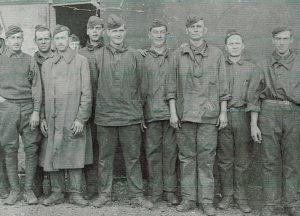
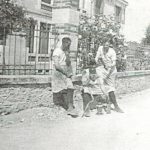 World War I doughboy, Frank Buckles, died in 2011 in West Virginia at age 110. Buckles enlisted in the Army at age 16 in August 1917, four months after the United States entered the conflict, and drove military vehicles in France. One of 4.7 million Americans who served in the war, Buckles was buried at Arlington National Cemetery. It’s strange to think that my grandfather, George Byer was one of the men called doughboys, but then he was stationed in France at that time in history, so I guess that Grandpa was a doughboy.
World War I doughboy, Frank Buckles, died in 2011 in West Virginia at age 110. Buckles enlisted in the Army at age 16 in August 1917, four months after the United States entered the conflict, and drove military vehicles in France. One of 4.7 million Americans who served in the war, Buckles was buried at Arlington National Cemetery. It’s strange to think that my grandfather, George Byer was one of the men called doughboys, but then he was stationed in France at that time in history, so I guess that Grandpa was a doughboy.
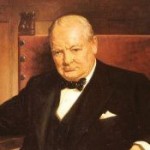 It’s always fun to find out that you are related to someone who is famous, and for me, it has been common knowledge for all of my life. The Spencer side of my family is full of aristocracy. Some are princes and princesses, and even future kings, and others were great strategists, like Winston Leonard Spencer-Churchill, who is my 15th cousin once removed. You will notice the hyphen, and while it isn’t in his name, it is nevertheless, correct. He was a product of grandparents who merged two wealthy family names, when his 4th great grandfather, Charles Spencer married Ann Churchill and they hyphenated the names. Later, family members either used the traditional Spencer name, such as Diana Spencer’s line, or they used the Churchill name, as Winston Churchill’s line did, even though they continued the Spencer part of the name in his line. People have often thought it was his middle name, but that is not so. I don’t know if they used the hyphen back then, but the names were both last names.
It’s always fun to find out that you are related to someone who is famous, and for me, it has been common knowledge for all of my life. The Spencer side of my family is full of aristocracy. Some are princes and princesses, and even future kings, and others were great strategists, like Winston Leonard Spencer-Churchill, who is my 15th cousin once removed. You will notice the hyphen, and while it isn’t in his name, it is nevertheless, correct. He was a product of grandparents who merged two wealthy family names, when his 4th great grandfather, Charles Spencer married Ann Churchill and they hyphenated the names. Later, family members either used the traditional Spencer name, such as Diana Spencer’s line, or they used the Churchill name, as Winston Churchill’s line did, even though they continued the Spencer part of the name in his line. People have often thought it was his middle name, but that is not so. I don’t know if they used the hyphen back then, but the names were both last names.
Churchill was born to Lord Randolph Spencer and his wife Jennie Jerome, on November 30, 1874. They were members of a prestigious family with a long history of military service and upon his father’s death in 1895, 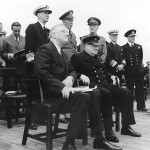 Winston joined the British Fourth Hussars. During the next five years, Winston Churchill enjoyed an illustrious military career, serving in India, the Sudan, and South Africa, and distinguishing himself several times in battle. In 1899, he resigned his commission to concentrate on his literary and political career and in 1900 was elected to Parliament as a Conservative MP from Oldham. In 1904, he began serving in a number of important posts before being appointed Britain’s First Lord of the Admiralty in 1911. Churchill foresaw a war that would bring with it a need for a navy that was ready, and well thought out strategies that would bring victory, and he worked to bring such a British Navy into existence. Churchill was a born strategist.
Winston joined the British Fourth Hussars. During the next five years, Winston Churchill enjoyed an illustrious military career, serving in India, the Sudan, and South Africa, and distinguishing himself several times in battle. In 1899, he resigned his commission to concentrate on his literary and political career and in 1900 was elected to Parliament as a Conservative MP from Oldham. In 1904, he began serving in a number of important posts before being appointed Britain’s First Lord of the Admiralty in 1911. Churchill foresaw a war that would bring with it a need for a navy that was ready, and well thought out strategies that would bring victory, and he worked to bring such a British Navy into existence. Churchill was a born strategist.
Winston Churchill’s military leadership took quite a blow during World War I, when he was held responsible for the disastrous Dardanelles and Gallipoli campaigns in 1915, and he was excluded from the war coalition government. He resigned his commission, and volunteered to command an infantry battalion in France. In 1917, Churchill returned to politics. He became a cabinet member of the Liberal government of Lloyd George, a move that I suspect he would regret. From 1919 to 1921, he was secretary of state for war. Then, in 1924 he returned to the Conservative Party, where two years later he played a leading role in the defeat of the General Strike of 1926. Out of office from 1929 to 1939, Churchill issued unheeded warnings of the threat of German 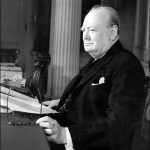 and Japanese attacks. After the outbreak of World War II in Europe, Churchill was called back to his post as First Lord of the Admiralty and eight months later replaced Neville Chamberlain, an ineffective military leader, as prime minister of a new coalition government. In the first year of his administration, Britain stood alone against Nazi Germany, but Churchill promised his country and the world that the British people would “never surrender.” He rallied the British people to a strong resistance and expertly orchestrated Franklin D Roosevelt and Joseph Stalin into an alliance that eventually crushed the Axis. Churchill proved himself to be the best military leader Britain could possibly have had at a time when he was desperately needed. Today would have been Winston Spencer Churchill’s 142nd birthday.
and Japanese attacks. After the outbreak of World War II in Europe, Churchill was called back to his post as First Lord of the Admiralty and eight months later replaced Neville Chamberlain, an ineffective military leader, as prime minister of a new coalition government. In the first year of his administration, Britain stood alone against Nazi Germany, but Churchill promised his country and the world that the British people would “never surrender.” He rallied the British people to a strong resistance and expertly orchestrated Franklin D Roosevelt and Joseph Stalin into an alliance that eventually crushed the Axis. Churchill proved himself to be the best military leader Britain could possibly have had at a time when he was desperately needed. Today would have been Winston Spencer Churchill’s 142nd birthday.

